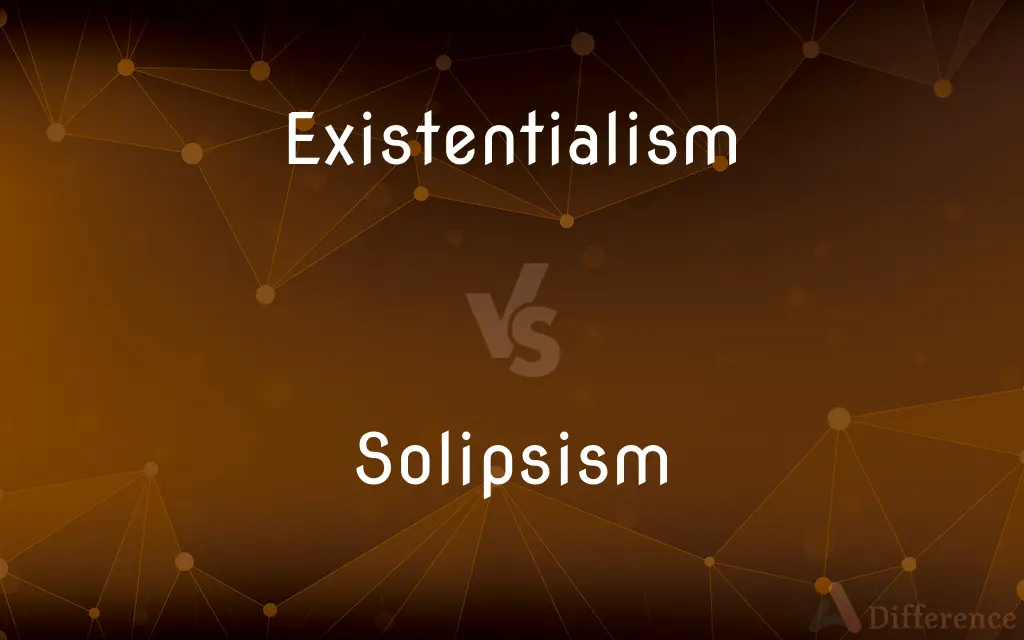Existentialism vs. Solipsism — What's the Difference?

Difference Between Existentialism and Solipsism
ADVERTISEMENT
Compare with Definitions
Existentialism
Existentialism ( or ) is a form of philosophical inquiry that explores the problem of human existence and centers on the experience of thinking, feeling, and acting. In the view of the existentialist, the individual's starting point has been called "the existential angst," a sense of dread, disorientation, confusion, or anxiety in the face of an apparently meaningless or absurd world.
Solipsism
Solipsism ( (listen); from Latin solus 'alone', and ipse 'self') is the philosophical idea that only one's mind is sure to exist. As an epistemological position, solipsism holds that knowledge of anything outside one's own mind is unsure; the external world and other minds cannot be known and might not exist outside the mind.
Existentialism
A philosophy that emphasizes the uniqueness and isolation of the individual experience in a hostile or indifferent universe, regards human existence as unexplainable, and stresses freedom of choice and responsibility for the consequences of one's acts.
Solipsism
(Philosophy) The theory that the self is the only thing that can be known and verified.
Existentialism
A twentieth-century philosophical movement emphasizing the uniqueness of each human existence in freely making its self-defining choices.
The heyday of existentialism occurred in the mid-twentieth century.
ADVERTISEMENT
Solipsism
The view that the self is the only reality.
Existentialism
The philosophical views of a particular thinker associated with the existentialist movement.
Sartre's existentialism is atheistic, but the existentialism of Marcel is distinctly Christian.
Solipsism
Absorption with oneself without consideration for the needs and desires of others
A self-indulgent memoir that revealed the author's solipsism.
Existentialism
A philosophical theory or attitude having various interpretations, generally emphasising the existence of the individual as a unique agent with free will and responsibility for his or her own acts, though living in a universe devoid of any certain knowledge of right and wrong; from one's plight as a free agent with uncertain guidelines may arise feelings of anguish. Existentialism is concerned more with concrete existence rather than abstract theories of essences; is contrasted with rationalism and empiricism; and is associated with Kierkegaard, Heidegger and Sartre, as well as others.
Solipsism
(philosophy) The idea that the self is all that exists or that can be proven to exist.
Existentialism
(philosophy) a 20th-century philosophical movement; assumes that people are entirely free and thus responsible for what they make of themselves
Solipsism
Self-absorption, an unawareness of the views or needs of others; self-centeredness; egoism.
Solipsism
Egotism.
Solipsism
Egoism.
Solipsism
(philosophy) the philosophical theory that the self is all that you know to exist
Share Your Discovery

Previous Comparison
Tenacity vs. Grit
Next Comparison
Hallway vs. Porch














































